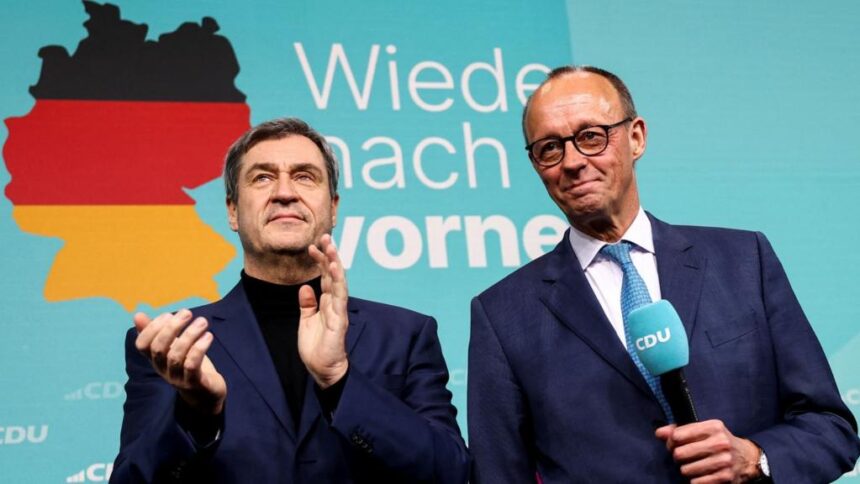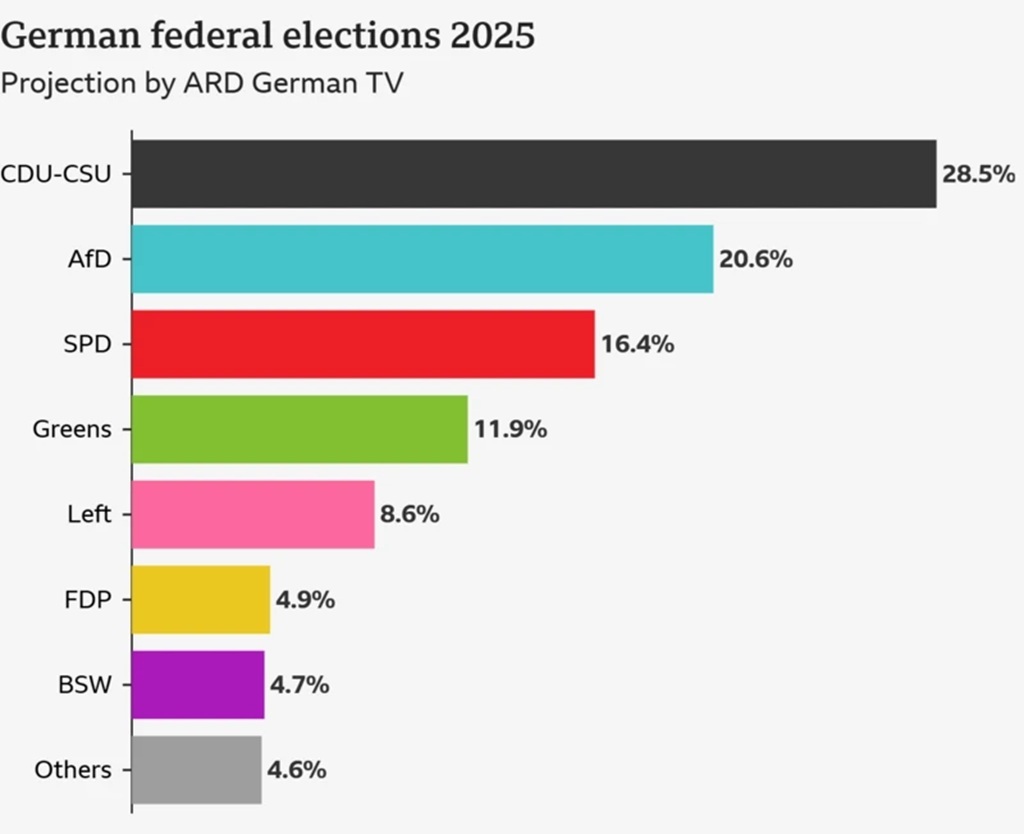According to exit polls, Germany’s Christian Democratic Union (CDU) is projected to have won Sunday’s election, with Friedrich Merz expected to become the next chancellor. The far-right Alternative for Germany (AfD) made significant gains, securing second place.
Friedrich Merz, 69, has long been a rival of former chancellor Angela Merkel. He has promised tougher immigration measures and is set to replace Olaf Scholz, who will serve as caretaker chancellor until a new coalition is formed. Merz aims to finalize the coalition by Easter, a process often taking time in Germany’s political system.
Merz will likely approach the Social Democrats (SPD) to form a majority government, although Scholz’s poor election results could make their involvement uncertain. Winning enough seats might also require negotiations with the Greens, who received at least 12% of the vote. However, the CDU’s sister party, the CSU, has so far resisted this idea.
The fate of smaller parties remains crucial, as many are teetering around the 5% threshold needed to re-enter the Bundestag. Among them is the pro-business Free Democratic Party (FDP), a potential ally for Merz in securing a majority.
The outcome could also be influenced by how the far-left parties perform in the official count.
Germany Exit Poll Results
The AfD, which has its strongest support in former East Germany, also gained ground in western states, achieving its best-ever result amidst concerns over high-profile attacks. Projections suggest the AfD could claim 20.5% of the vote.
Despite this, Merz has ruled out any collaboration with the party, citing a long-standing political tradition in Germany that avoids partnerships with the far right.
Merz has stressed the importance of addressing voter concerns that have fuelled the AfD’s rise, warning that failure to do so could lead to even greater support for the far-right in the future.
Political analyst Michael Broening highlighted the urgency of this challenge, stating that mainstream parties must provide answers to economic stagnation, immigration issues, and voter dissatisfaction. According to Broening, this election might be the last chance for traditional parties to regain trust.
US President Donald Trump commented on Truth Social, calling the conservative win a “great day for Germany” and suggesting that voters were tired of policies lacking “common sense.”
NATO Secretary General Mark Rutte expressed optimism about working with Merz and emphasized the need for stronger European defence efforts.
Danish Prime Minister Mette Frederiksen congratulated Merz, stating that Europe’s strength relies on Germany’s leadership. Meanwhile, Israeli Prime Minister Benjamin Netanyahu shared on X that he looks forward to strengthening ties with Merz’s government.
Related News:
Putin Advises USA Against Putting Long-range Missiles in Germany.

Geoff Thomas is an award winning journalist known for his sharp insights and no-nonsense reporting style. Over the years he has worked for Reuters and the Canadian Press covering everything from political scandals to human interest stories. He brings a clear and direct approach to his work.













